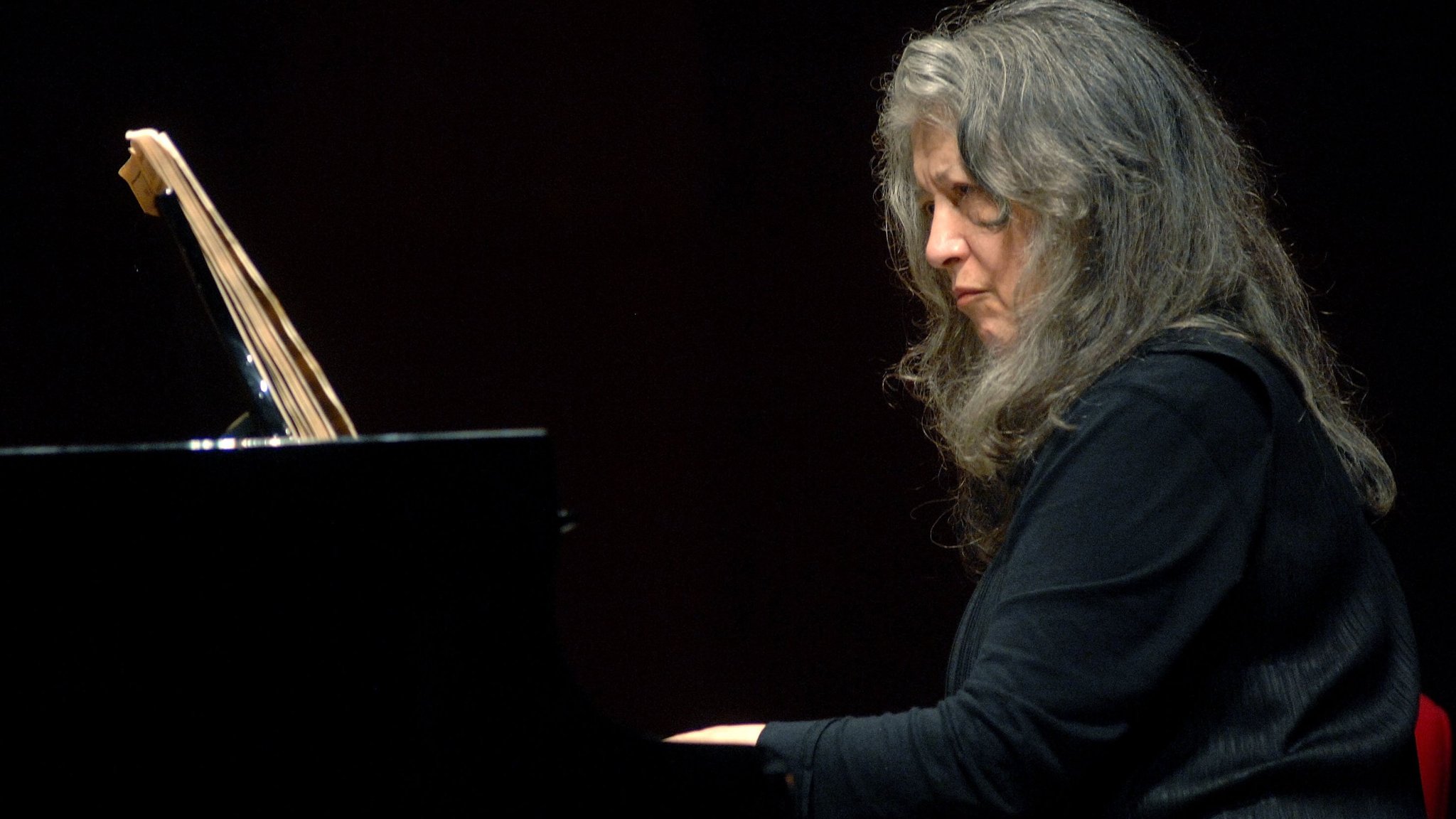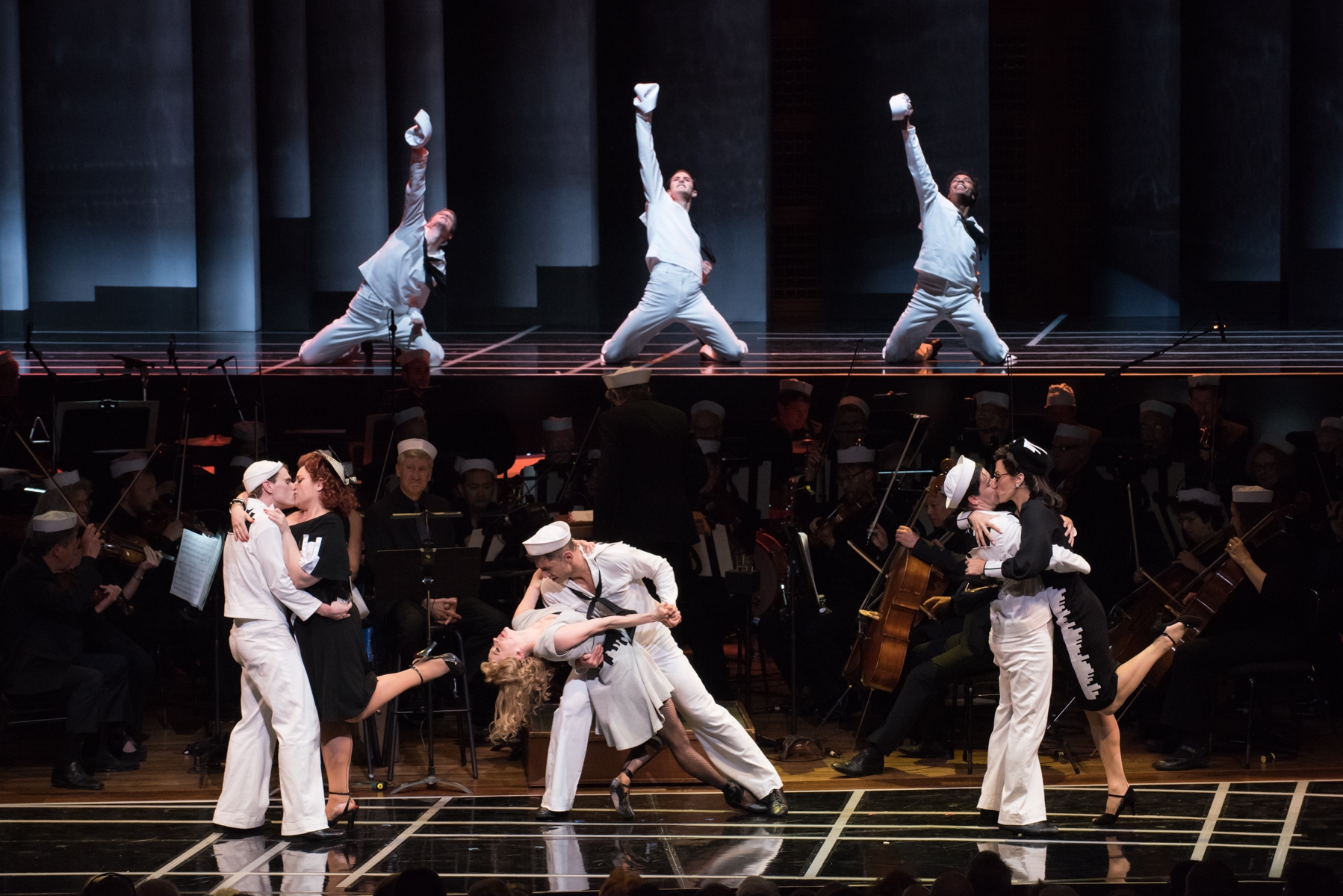Legend

So yeah, Martha Argerich really did show up at the Kennedy Center last month (I know this happened three weeks ago, but I have a new job that's been keeping me really busy), though many people milling about the lobby before the concert said they'd only believe it when she actually walked onstage. If you didn't know, part of Argerich's legend is that she doesn't like to plan too much in advance, and she's notorious for canceling performances near the last minute, leaving fans feeling both frustrated and hopeful that one day they'll actually get to see her perform in person. So let's give some major kudos to Washington Performing Arts, who arranged for Argerich to perform in DC not once, but twice this season. That's like having a second date with a unicorn.
Is it surprising the concert also turned out to be the best concert I've seen in recent memory? That Argerich lived up to her legend in every way possible? No... and yes,
No because I've seen her once before, in 2009 with the San Francisco Symphony when she performed Ravel's Ravel's Concerto in G. That concert also featured Ligeti's Requiem, and it remains a highlight of my concert-going experiences. And no, because she's Martha Argerich. One expects her to be great beyond words.
Yes because she came to town with an orchestra from Rome I knew absolutely nothing about, and I have to admit I had never heard of before the concert was announced, and one with a ridiculously long and hard to pronounce name: the Orchestra dell'Accademia Nazionale di Santa Cecilia. And yes because this orchestra, led by Antonio Pappano (another legend), might just be the best orchestra I've ever heard. Argerich would probably sound marvelous playing with any top tier group of musicians, but this was a pairing for the ages: together they turned a program that wasn't actually all that interesting on paper into one that felt vital and essential as unfolded in the ears. Not in some intellectually profound way, but for the sheer pleasure in experiencing music played at the highest possible level by people who were obviously enjoying every moment of it.
Now in her mid-seventies, Argerich looks like a well-coiffed hippie with her flowing grey mane of hair, slightly diffident demeanor, and her penchant for loose, colorful ensembles. She bobs her head to the music, smiles slyly every once in awhile, and dispatches the most difficult and flashy finger-busters with clarity and ease. Watching most top tier pianist perform Prokofiev's Piano Concerto No. 3 is watching two blurred hands fly across the keys, but one can see Argerich's fingers clearly even while the notes cascade beneath her like a waterfall unleashed by her dancing hands. Her precision is truly awe-inspiring, yet she seems to toy with the music rather than challenge it. The dreamlike 3rd movement begins like a slow, languid, sensual reverie before exploding into Rachmaninoff's sentimental terrain. Argerich fought against the latter, infusing it with the mad energy of a train running off the tracks, forcing the orchestra to chug along behind her, billowing steam. It was, in a word, thrilling. As an encore, she sat down with Pappano for a two-handed version of Ravel's Mother Goose, letting him take the lead.
That the second half of the concert was as enjoyable as the first was something of a miracle, given that Pappano and the Santa Cecilia played Resphigi's Fountains and Pines of Rome. Performed well, these pieces can come alive in ways I've never heard a recording come close to capturing, and these musicians were superb in every way across the board. From where I was seated a few rows back in the orchestra I could see the interaction between them clearly -- eye signals, nods, and smiles revealed an ensemble that truly enjoys performing this music and it was evident in the results, even as they romped through Rossini's William Tell Overture as an encore. That many of the men and women in the orchestra looked like they arrived onstage straight from a fashion shoot was a small bonus, adding to their sense of Roman splendor and grace, and unintentionally making every American orchestra I can think of look dowdy and dull by comparison. Prior to this tour, they haven't performed in the U.S. in decades, which is our loss. Should you get the chance, don't pass on seeing them.
Like this? Like and follow A Beast on Facebook for more, including the Daily Illustrated Henry James.





